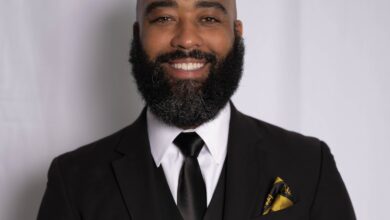The Story of Black Atlanta and Tyler Perry
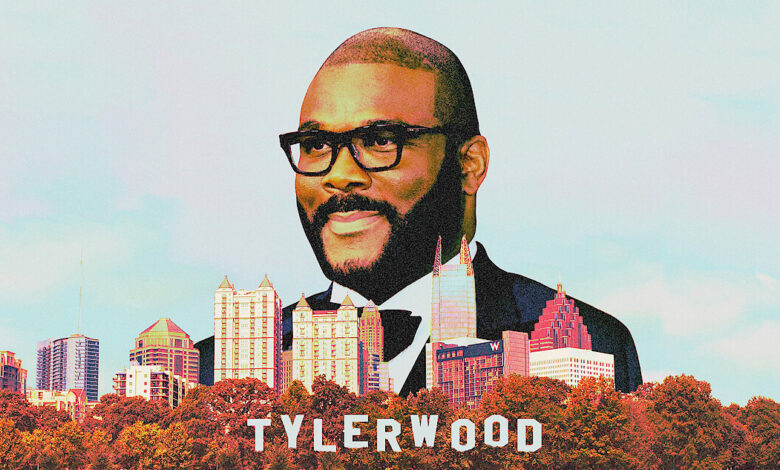
In 2019, Tyler Perry cemented his film empire and made history by opening the first-ever fully-Black-owned film studio — not in Hollywood but Atlanta, a growing hub for Black culture and creativity. Perry, who moved to Atlanta in the early 1990s, made his studio a love letter to his home state and to the Black stars who paved the way for him to be the powerhouse that he is.
Tyler Perry Studios is a 300-acre campus built on land once occupied by former Confederate army base Fort McPherson. Perry bought the area from Atlanta in 2015 for $30 million and turned it into “one of the largest movie studios in the US, the largest of any studio east of the Mississippi River, and the largest entertainment complex owned by an African American or person of African descent in the world,” according to Atlanta magazine.
Tyler Perry came to see Atlanta as a second home and as such, he wanted to make sure it was given the respect it deserved.
The studio is a crown jewel in Perry’s decades-long career of grinding in the entertainment industry. But it’s also a feather in the cap of the city of Atlanta, cementing it as one of the biggest entertainment hubs outside of Hollywood. Perry himself alludes to this in his speech at his studios’ grand opening, according to The Hollywood Reporter.
“Today is a good day. I’m grateful for the opportunity this gives Tyler Perry Studios to extend our footprint in Atlanta and create more opportunities for the people of Southwest Atlanta with restaurants, entertainment venues and other business opportunities.”
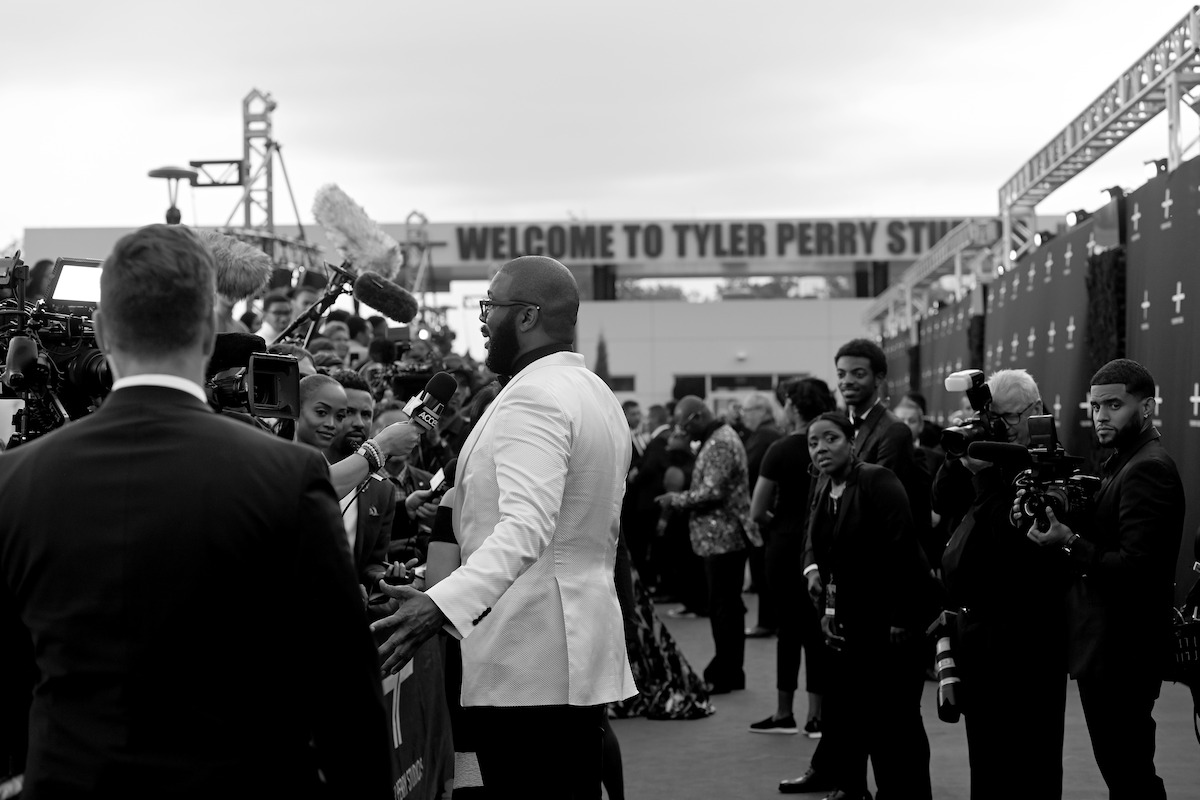
Paras Griffin/Getty Images
Georgia Governor Brian Kemp also talked about Perry and Bishop T.D. Jakes’ joint efforts to keep Atlanta on the cusp of the national conversation, telling The Hollywood Reporter that the studios and Jakes’ real estate company “[are] a real shot in the arm for an important community within the state of Georgia.”
“Significant job creation such as this will create more opportunities for hardworking Georgians and surrounding small businesses, which are the real backbone of our state’s economy,” then-Atlanta mayor Keisha Lance Bottoms added. ‘The positive impact” of the investments being made “will be felt for generations to come.”
The reverberations of Perry’s financial support for Atlanta is part of an ongoing tradition of Atlanta rising in the ranks of national prominence. In particular, it’s part of Black Atlantans transforming the city from its prejudicial roots into a safe haven for Black pride and Black excellence.
Atlanta’s ’90s renaissance
To understand Perry’s position in Atlanta’s growing dominance in the entertainment industry, it’s important to understand the history of 1990s Atlanta.
When some think of the South, they forget about its Black citizens, despite those citizens’ ancestors making the region rich in more ways than one, usually while under duress. Black Southerners, however, are the key to political, social and creative progress in the region, and Atlanta is no different. Atlanta was in the beginning stages of changing its outward appearance to the world in the 1990s. The rap world showcased Atlanta’s endless creativity: Outkast, for instance, formed in 1992, giving rap a distinct Southern flair. Black Southern Democrats gained even more power in the early ’90s, becoming essential to presidential campaigns. These examples weren’t outliers; the early ’90s was the beginning of a new age for the Black South.
Black Southerners, however, are the key to political, social and creative progress in the region.
The same year that Outkast set out to take over the airwaves, Atlanta began reclaiming its image thanks to Black tourism. In 1992, Atlanta started banking heavily on Black tourism, leveraging the word-of-mouth buzz from Black communities about where to go and using it to create a special edition of its visitors guide, Atlanta Now, specifically geared toward Black Southern culture. The guide, which featured numerous monuments and buildings important to Black American history and the civil rights movement, was an instant success. Atlanta’s Convention and Visitors Bureau officials told the South Florida Sun-Sentinel at the time that Black tourism was a “large and lucrative market,” citing that more people visit Martin Luther King’s birth home and the King Center (where his body is entombed) than Mount Rushmore or the Vietnam Veterans Memorial.
The guide was also evidence of the relative wealth within Atlanta’s Black community. While, of course, white Americans still have the lion’s share of generational wealth, Atlanta has the “largest collection of historically Black colleges and universities in the country,” according to the Sun-Sentinel, meaning that there is a wealth of a different sort: educational wealth. “And,” the article continued, “there is a perception, at least, that Black people have made greater financial and political inroads here than elsewhere [according to McFall].”
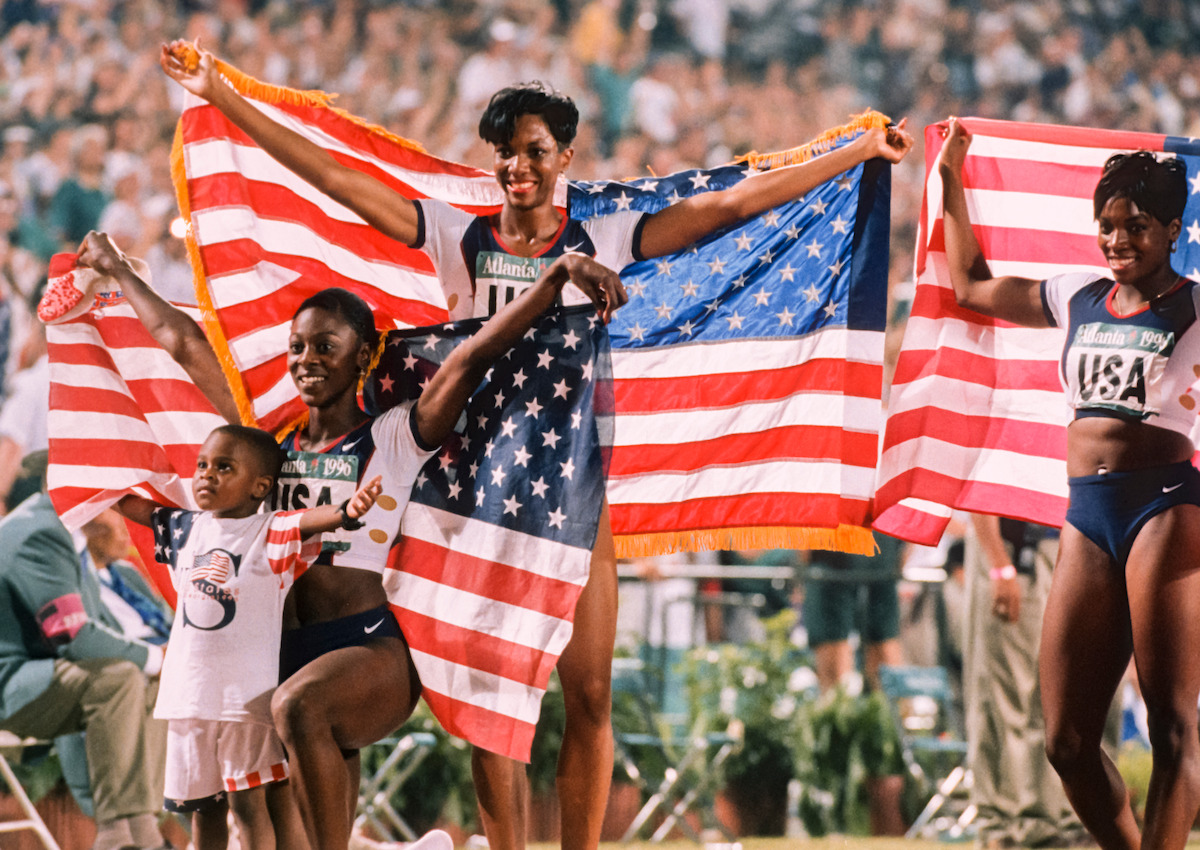
David Madison/Getty Images
Though it seemed only Black ATLiens knew about Atlanta’s potential to become a nationally recognized, culture-shaking city, that was all about to change. The Olympics came to Atlanta in 1996, a big deal not only because such a global event was to be held in the American South but also in a majority-Black city. Black people throughout the South were wielding greater social, economic and political power, thanks to the groundwork laid by the civil rights movement 30 years prior. With more empowerment came greater strength to reimagine the South in Black America’s image. The Olympics is a case in point.
“Atlanta was not considered a world-class city,” according to WBUR. “Set amid rolling hills far from an ocean port or a major river, Atlanta was mainly a ground and air transportation hub with a reputation for hospitality. Even so, Atlanta even beat out Athens, which was bidding to be the sentimental host of the 100th anniversary of the modern Olympics.”
The city benefited from the Olympics, and Black Atlantans, perhaps more so than other groups, saw their city grow exponentially. Poorer, predominantly Black, parts of the city were revitalized, new buildings were created, and community grants helped refurbish and uplift previously underprivileged neighborhoods. The Centennial Olympic Park, for instance, was developed on disused land where a sea of derelict warehouses once stood.
“The Olympics was one of those periods, one of those five-year periods, when people from all backgrounds decided to do what’s right,” Atlanta Olympic committee member Shirley Franklin said to WBUR. “Not just to host great games, but right by the folks who lived in some of the lowest-income communities.”
Harvey Newman, a professor emeritus in public policy studies at Georgia State University, told WBUR that the Olympics made sure Atlanta was never forgotten on the national stage. The games jump-started a wave of business in Atlanta, propelling it ahead of Boston as an area of operations for Fortune 500 companies.
“I thought, ‘No way we can sustain that,’ ” he said of his fear of a decline in financial interest in the area after the Olympics. “To my astonishment, the building frenzy that had started in the six years building up to the games was just a prelude.”

Joe Sohm/Visions of America via Getty Images
Tyler Perry’s ascension
Perry lived through the early days of Atlanta’s Black renaissance, putting him on the ground floor of a new paradigm in the city. He also came to see Atlanta as a second home, and as such, he wanted to make sure it was given the respect it deserved. Little did he probably know at the time that his success would not only keep Atlanta in the public eye after the Olympics but would build on the city’s success with the games, propelling the city even further along the path of national dominance.
Perry wrote on Facebook: “Atlanta has truly been the promised land for me. I came here with nothing, lived off Sylvan Road, ended up homeless and starving, but I was always praying and believing. I was always keeping the faith, knowing that if I worked hard, did my absolute best, kept my integrity, honored every blessing, and remained grateful through it all that everything would work out. And it has, thank God.”
For Perry, Atlanta has served as more than just a home; it’s served as a creative muse.
Perry also said in an interview with the Atlanta Business Chronicle that he saw Atlanta as the place where someone’s dreams could really come true. From his meager beginnings there as one of its homeless — after moving from his hometown of New Orleans — surviving on little food and little money, he was able to catapult his stage plays across the country, paving the way for his road to Hollywood domination.
For Perry, Atlanta has served as more than just a home; it’s served as a creative muse. He, like many Black Atlantans, saw the value in the city before the rest of the country would recognize it. According to his website, he was one of the first filmmakers to utilize Georgia’s tax incentive to film in the state. The program began in 2005, the same year Perry’s first film writing credit, Diary of a Mad Black Woman, debuted in theaters.
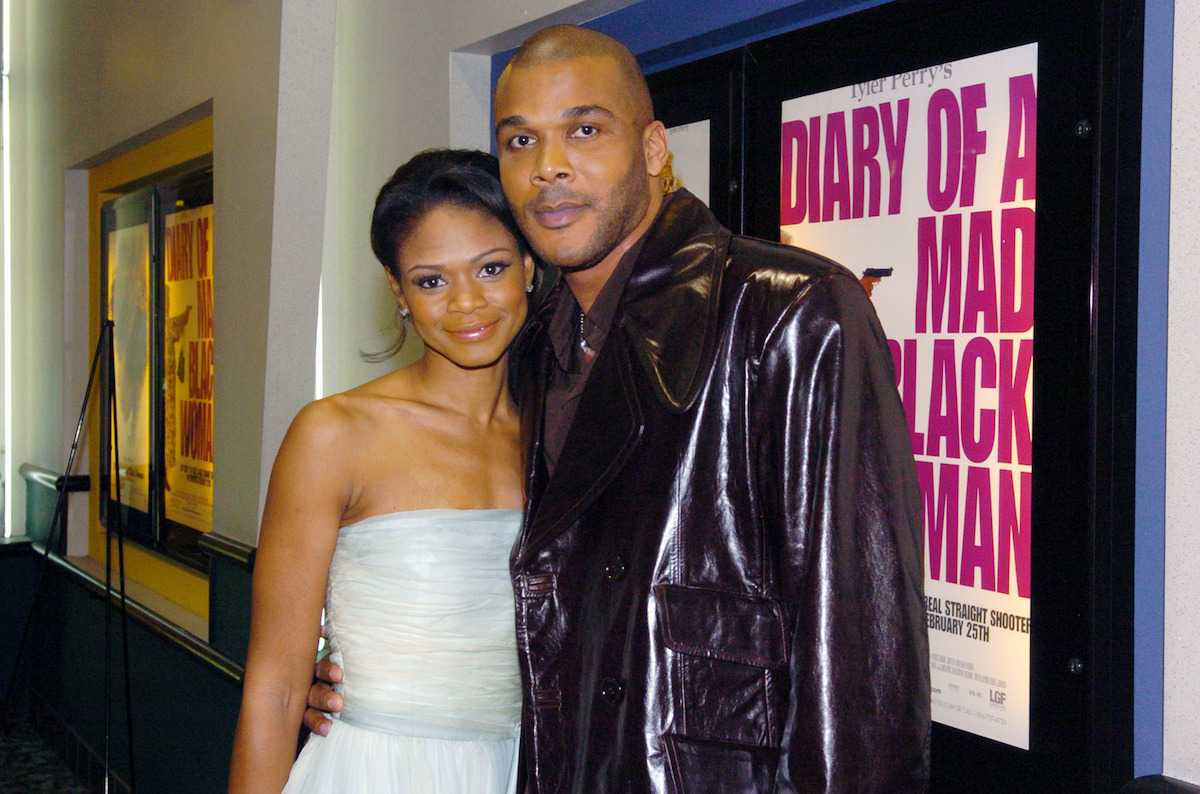
He continued supporting Atlanta’s film community throughout his career. As Atlanta’s film industry grew, Perry would employ more of the city’s talent on his various films and TV shows. Not only that, but he would routinely give back to the city in other ways, such as donating grocery store gift cards to needy families. He has also worked with city officials and Maximum Impact, the nonprofit arm of CKS Packaging to distribute 5,000 boxes of food and additional face masks during the pandemic.
“This is about the community that I love, that I live and work in,” he told Atlanta radio station V-103. “This is about good people who are in need of a hand up, not a handout. This is about the good police officers who do their job well everyday, some of which are my personal friends. This is about trying to bridge unity in a city that adopted me and held me up high enough to reach my own branch on the tree of success. I love Atlanta and its people!”
His studio is yet another way Perry gives back to Atlanta, but his love for the city goes beyond just a financial relationship; it’s about supporting Black America in ways beyond the silver screen. Nowadays, Atlanta is the buzzword in Hollywood. And much of that is thanks to the efforts of Tyler Perry and the talented Black community he was able to tap into and give a platform.
In short, Tyler Perry Studios is just another way for Atlanta to say that Black creativity and Black worth are here to stay. Perry, in addition to all of the Black talent and creativity that’s come out of the city, continues to increase Atlanta’s glory as a prosperous Black city that embraces the uniqueness, talent, and resilience of Black people.

